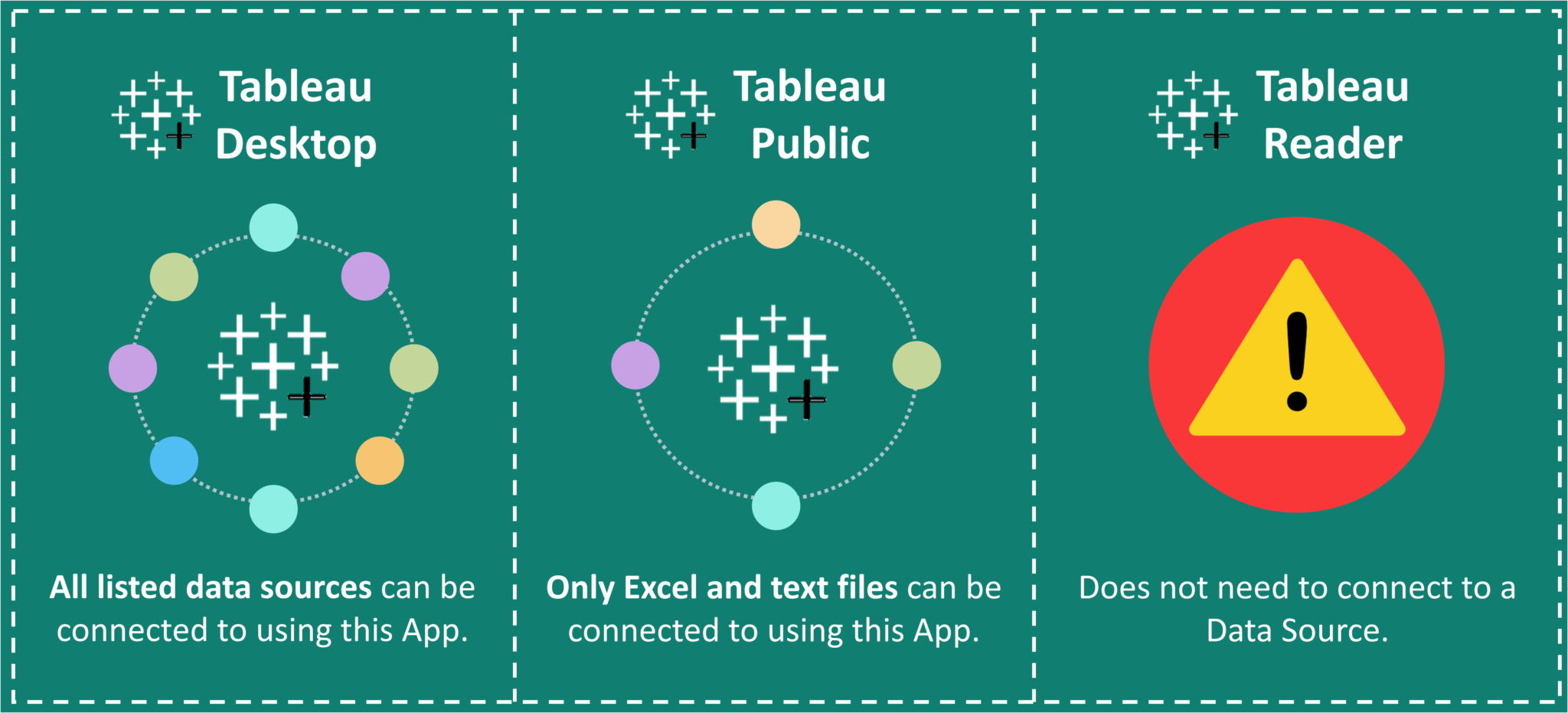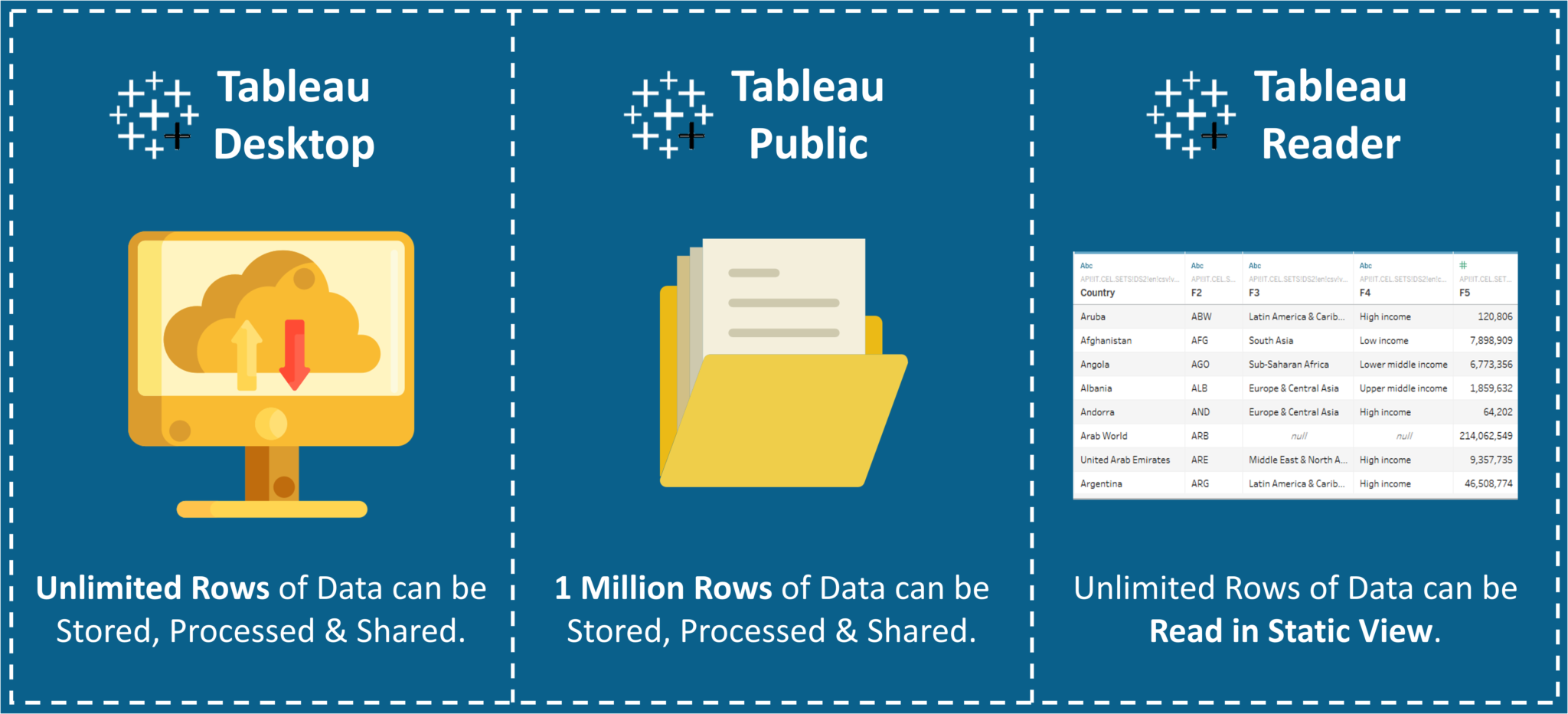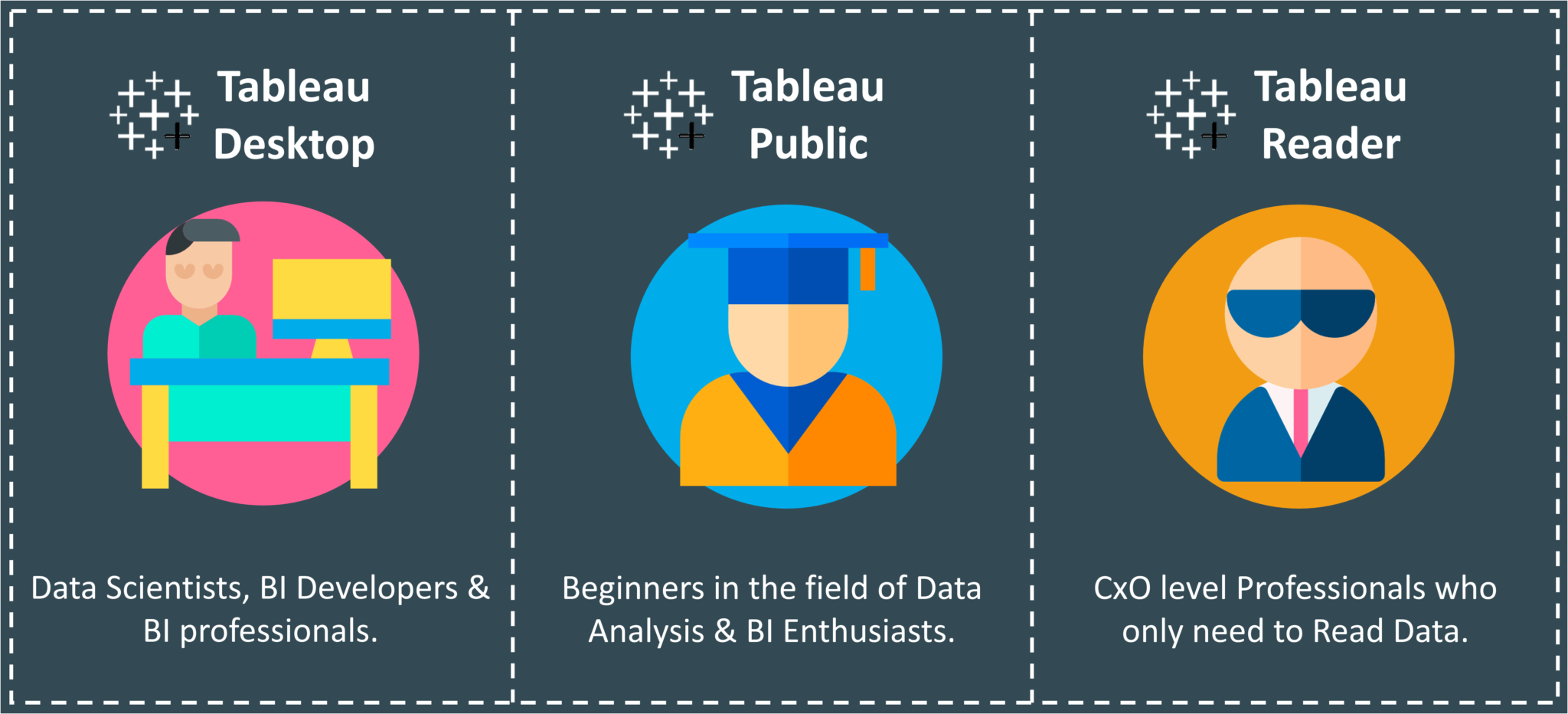Power BI Certification Training Course: PwC A ...
- 101k Enrolled Learners
- Weekend/Weekday
- Live Class
Many people are often thrown into a dilemma looking at the different software options that Tableau offers. Each of them has an increasing layer of features. Additionally, your intention will also govern what software version you should incorporate into your work. So, we’ve decided to make your lives simpler by doing a little toe-to-toe comparison of Tableau Desktop vs Public vs Reader.
So, the comparison shall be based on the following categories.
But first, let me begin by giving you a basic idea what versions of the software you may need through this flow chart below.
The Tableau Desktop is data visualization software that lets you see and understand data in minutes. The professional version of this can transform, process and store huge volumes of data which is responsible for all the data-driven decision making of an organization.
The Tableau Public is essentially a free version of Tableau visualization software. It allows you to use most of the software functions. You can create visualizations and connect to CSV, Text and Excel documents. However, the largest difference is that Tableau Public does not allow you to save your workbooks locally.
The Tableau Reader allows you to read the Tableau file types. If you want to share your workbook by sending a file, the receiver will need a Tableau reader to open the document. So why do we need the reader? Without the reader, you may need to share it publicly or convert the workbook into a PDF format.
This Edureka Live on “Tableau Public” talks all the features and capabilities in the free version of Tableau.

Creating Visualizations – Tableau Desktop vs Tableau Public vs Tableau Reader
Tableau Desktop essentially uses an AJAX-based JavaScript application to create a viz. It lets you ditch the slides for live stories on data that you can create, and others can explore.
Exceptional analytics demand more than a pretty dashboard. And you can quickly build powerful calculations from existing data, drag and drop reference lines and forecasts, and review statistical summaries.
Despite being an unpaid version, Tableau Public does just the same.
But the Tableau Reader is like a read-only app. It doesn’t support features to create/edit stories or graphs.

Data Sources – Tableau Desktop vs Tableau Public vs Tableau Reader
Tableau Desktop can connect to data on-prem or in the cloud—whether it’s big data, a SQL database, a spreadsheet, or cloud apps like Google Analytics and Salesforce. Access and combine disparate data without writing code. Power users can pivot, split, and manage metadata to optimize data sources.
Tableau Desktop Public Edition works with data from Microsoft Excel, multiple text file formats, statistical files, Google sheets, and web data connectors.
Tableau Reader does not need to connect to any source, but it can read reports built on top of any and all of the listed data sources that Tableau Supports.

Security – Tableau Desktop vs Tableau Public vs Tableau Reader
Your data is out in the public once your report is published on to the Tableau Public Server. For the other two options, you need an access link to access the Reports.
If you’d like to keep your data safe and private, you can opt for the Tableau Server.

Limit – Tableau Desktop vs Tableau Public vs Tableau Reader
Tableau Desktop has no limit to how many rows of data it can store, process or share whereas the limit for the Desktop Public App has been updated to 1 Million Rows recently.
Simplify and streamline your data preparation process. Learn how to clean, shape, and merge your data effortlessly with Tableau Prep Builder, and get your insights faster.

Cost – Tableau Desktop vs Tableau Public vs Tableau Reader
While Tableau Public and Reader apps are absolutely free of cost, Tableau Desktop has incurred the following prices;
For Tableau Desktop, reports published can be stored on your Local Drive as well as on the Tableau Server whereas, for Tableau Public, reports published can only be saved on the Tableau Server.
Reports cannot be published using the Reader.

Target Audience – Tableau Desktop vs Tableau Public vs Tableau Reader
Tableau Desktop is meant for someone with a career in Business Intelligence and Data warehousing such as Analysts and BI Professionals.
Tableau Public is for anyone interested in understanding data and sharing those findings as data visualizations with the world. Journalists, writers, bloggers, students and more.
Tableau Reader is for somebody that only needs to monitor the analytics. The CEOs & CFOs of the organizations wouldn’t be making dashboards for meetings but are definitely going to be interested to drill down and discover insights generated from the data.
In Conclusion, Tableau Products have successfully harnessed people’s natural ability to spot visual patterns quickly. This software helps create a compelling narrative and engage in insights from live data.
If you wish to master Tableau, Edureka has a curated course on Tableau Training Certification which covers various concepts of data visualization in depth, including conditional formatting, scripting, linking charts, dashboard integration, Tableau integration with R and more.
 Thank you for registering Join Edureka Meetup community for 100+ Free Webinars each month JOIN MEETUP GROUP
Thank you for registering Join Edureka Meetup community for 100+ Free Webinars each month JOIN MEETUP GROUPedureka.co
Thank you so much Upasana. That was absolutely crystal clear :-)